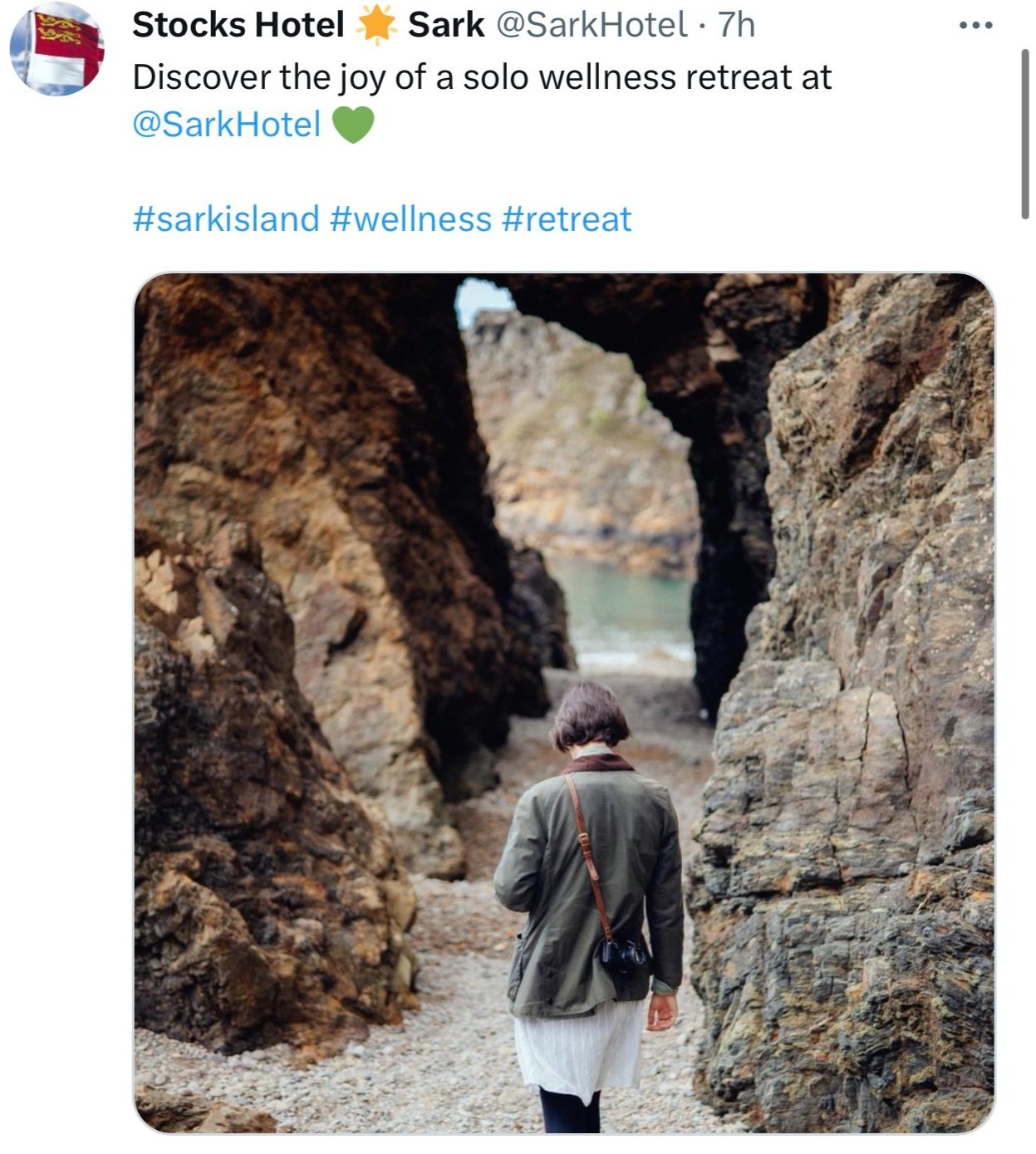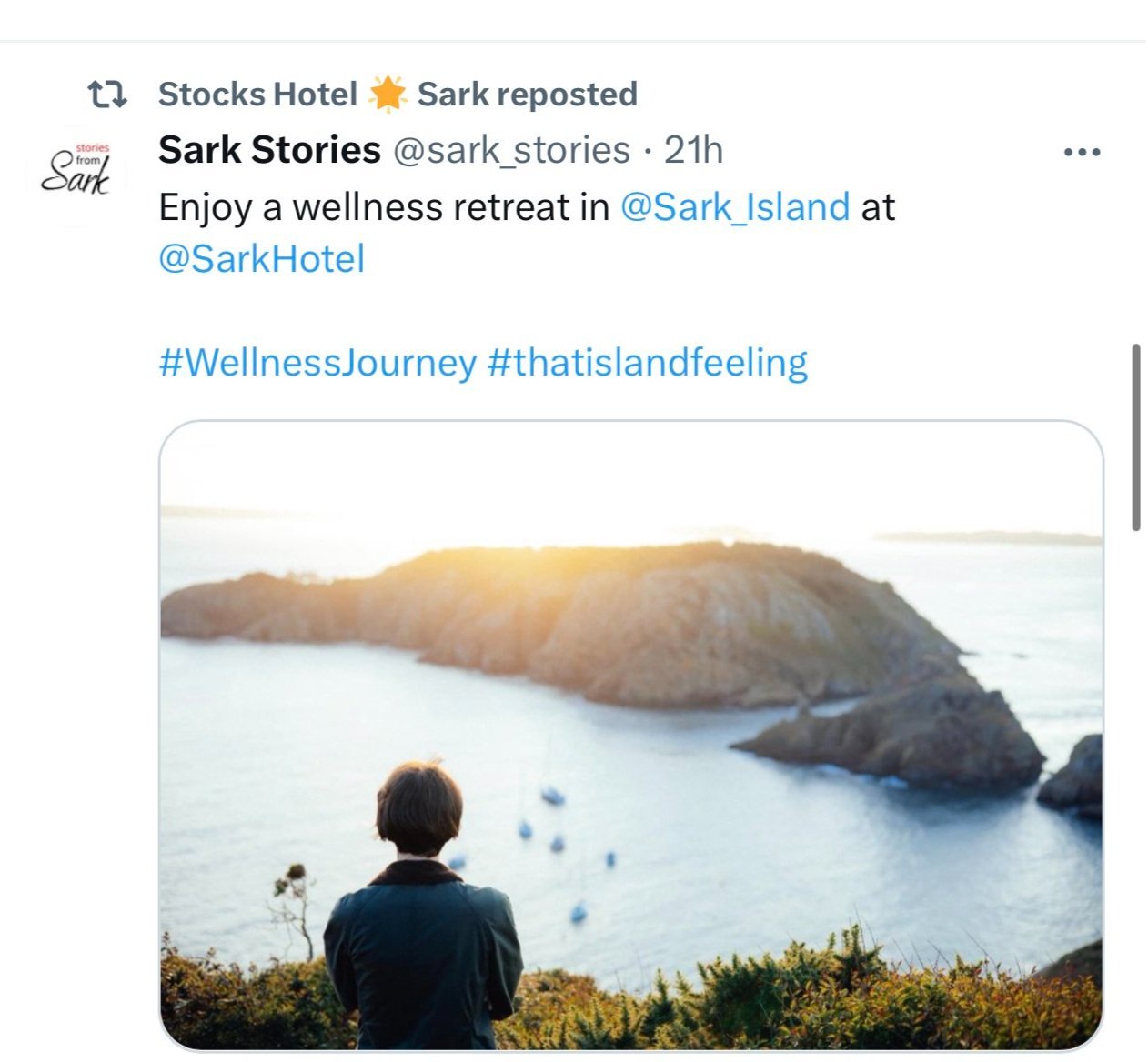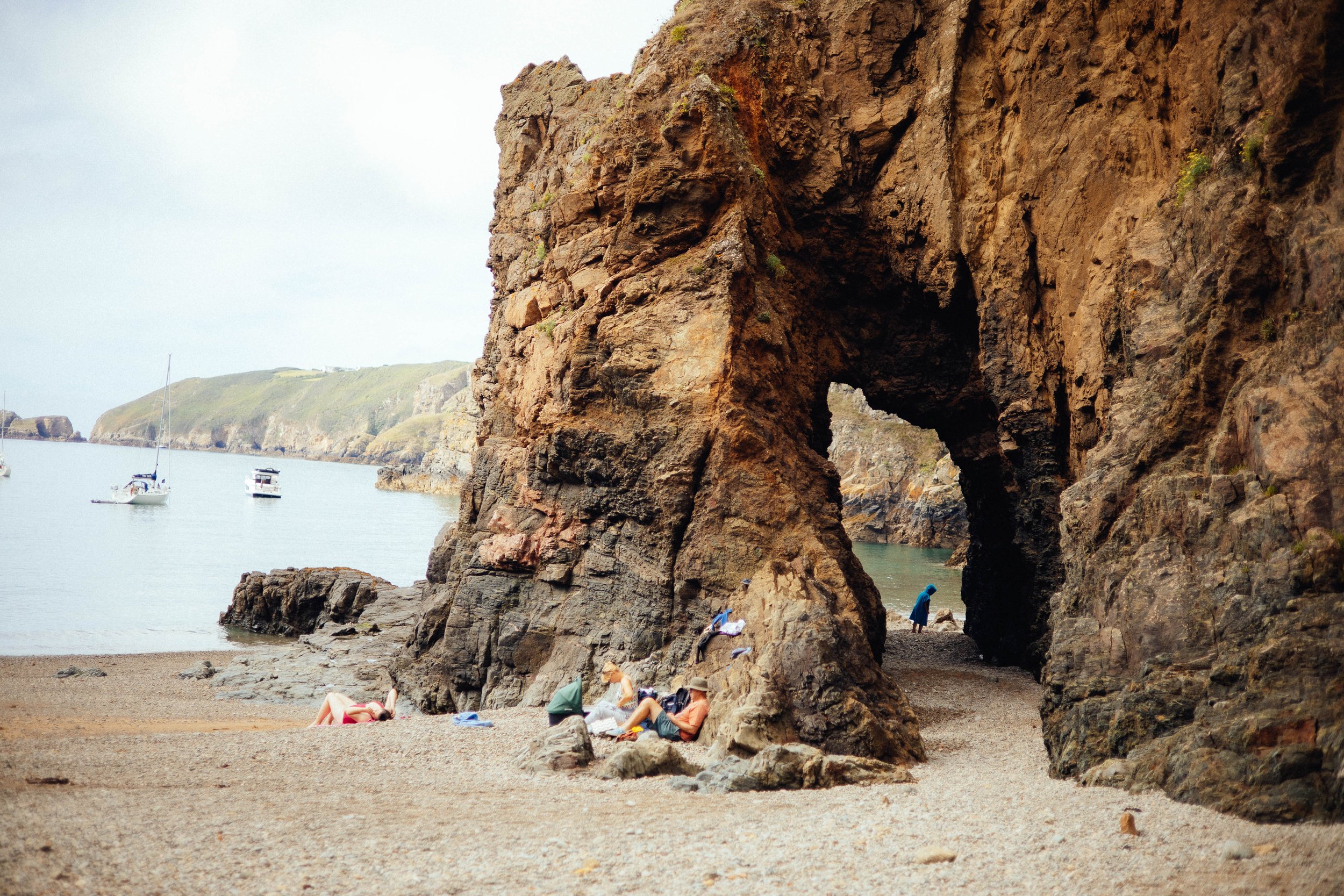Understanding Copyright Laws for Photographers: Why DMCA Matters
Introduction
We live in a digital age where photographs can travel faster than light—shared, reposted, and yes, sometimes stolen. Recently, a direct competitor to one of my clients used one of my copyrighted images without permission. This real-life scenario provides an ideal backdrop for discussing the importance of understanding copyright laws and knowing how to protect your work.
Images taken for Sunset Valley Holiday Home Sark
Why It's not okay
Imagine you've invested in a professional shoot for your business, and a direct competitor starts using those very images to advertise their own services. Not only is this ethically unacceptable, but it also dilutes your brand's uniqueness and undermines the investment you made in original content.
screen grabs of those Images being used to advertise a direct competitor.
The Basics of Copyright Laws
Copyright laws protect original works of authorship, including photographs. The moment you click the shutter button, you automatically own the copyright to that image. No registration, no watermarking, nothing else needs to be done. Many marketers mistakenly believe that if an image doesn't have a copyright symbol, or if it was found on a search engine, it's probably not copyrighted. This is a dangerous misconception.
Image taken for Sunset Valley Holiday Home Sark
Busting Copyright Myths
1. No Need for Registration or Watermark
You don't need to register your work for it to be copyrighted. Contrary to common misconceptions, a work is copyrighted the moment it's created. No registration, no copyright symbol, no watermark needed. This is a key difference between copyrights and trademarks or patents, which do require registration.
2. "Found it on Google" Isn't an Excuse
Just because an image appears in a search engine doesn't mean it's free to use. If you didn't create the image, you don't own it and legally can't use it unless you have permission.
3. Watermarks Are Optional, Not Obligatory
Some argue that all professional photographers should watermark their work, assuming that this protects against illegal use. This is incorrect and, frankly, not appropriate for client work. The responsibility legally lies with the person wanting to use the image for commercial purposes to ensure they have the legal right to do so.
4. The ‘Open-Source’ Confusion
Many people think that "open-source" or "royalty-free" images are free to use. This is not the case. Unlicensed use of any image, whether deemed copyrighted or royalty-free, infringes upon the owner's rights. You must ALWAYS obtain proper permission for commercial use—no exceptions. This can be done through a third party like a stock image website, but you will need to check each website’s terms and conditions to know exactly what you can and can’t do with that image.
Image taken for Sunset Valley Holiday Home Sark
The Importance of the DMCA:
how to take down an image of social media
The Digital Millennium Copyright Act (DMCA) helps protect copyrighted material online. As photographers, the DMCA offers us a way to request the removal of our copyrighted images from websites. If a site does not comply with your request, they may face legal penalties.
A Handy DMCA Template
To save you some time, here's a template you can use when issuing a DMCA takedown notice:
[Your Name]
[Your Address]
[Email Address]
[Today’s Date]
[Website Owner's Name/Corporation]
[Their Address]
Dear [Website Owner's Name], I am writing to inform you that you are using copyrighted material owned by me without my permission. Specifically, [describe the infringed material and its location on the website]. Under the Digital Millennium Copyright Act (DMCA), it is your responsibility to ensure you have the right to use copyrighted material. Please remove the specified material within [timeframe] or provide evidence of a license or permission. Failure to comply will result in me taking legal action to protect my copyrighted material.
Sincerely,
[Your Name]
Where to Send Your DMCA Notice
Send your filled-out template to the designated DMCA agent of the website in question. Some platforms list the DMCA agent’s contact information in their terms of service. Alternatively, you can send it to the general support email for the website.
DMCA Contact Information for Major Platforms
Facebook: ip@fb.com
Instagram: ip@instagram.com (owned by Facebook, sometimes the same contact may apply)
Twitter: copyright@twitter.com
YouTube: copyright@youtube.com
LinkedIn: copyright@linkedin.com
Pinterest: copyright@pinterest.com
Reddit: contact@reddit.com (Label the subject line as "Copyright Infringement")
Medium: copyright@medium.com
Vimeo: dmca@vimeo.com
TikTok: legal@tiktok.com
Snapchat: copyright@snap.com
WordPress: dmca@wordpress.com
Blogger: You'll need to fill out their online form
Google: dmca-agent@google.com
Tumblr: dmca@tumblr.com
Flickr: copyright@flickr.com
Conclusion
Understanding copyright laws and how they protect your images is essential for any photographer. As my recent experience with unauthorized usage shows, even professionals in marketing roles can misunderstand the rules. Always remember that whether or not an image looks 'open-source' or 'royalty-free,' proper permission must always be obtained for commercial usage.
If you find yourself in a similar situation, don't hesitate to take action. Issue a DMCA takedown notice and protect your creative work.






